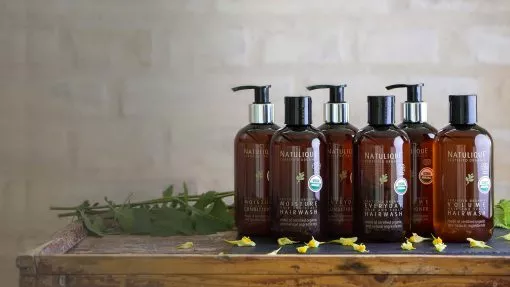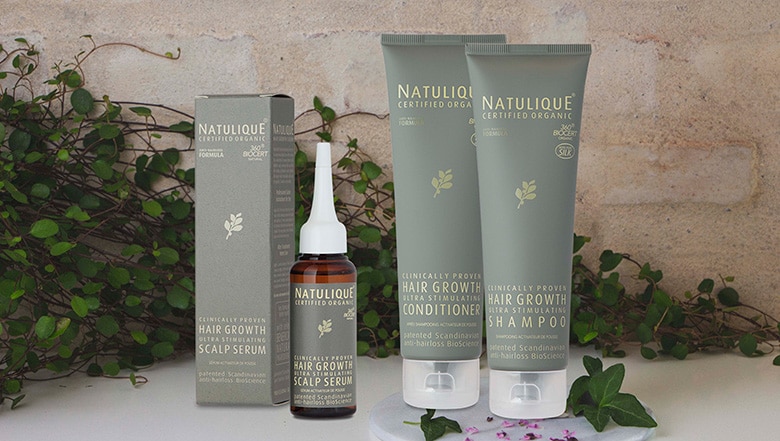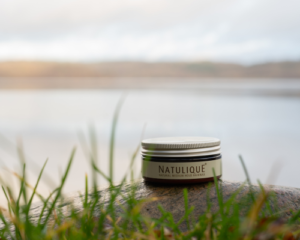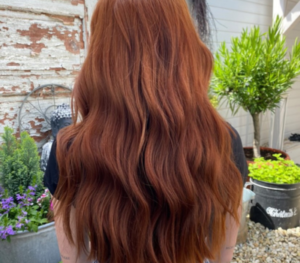Introduction to honey shampoo
Honey shampoo is becoming increasingly popular in the field of natural hair care. Known for its moisturizing and restorative properties, honey is a flagship ingredient that perfectly complements any hair care routine. In this article, we'll explore why choosing a honey-based shampoo is an excellent alternative to traditional, often chemical-laden products.
Honey: a natural beauty ingredient
The history and origins of honey in hair care
Since ancient times, honey has been used for its many health and beauty benefits. The Egyptians used it for its healing and moisturizing properties. In ancient cultures, honey was a symbol of wealth and healing. In hair care, it has always been prized for its ability to soften and moisturize. This tradition continues today in modern natural shampoo formulations.
Typical preparation of a honey shampoo
Preparing a honey shampoo involves combining honey with other natural, gentle ingredients to create a nourishing formula. Honey shampoos typically include herbal cleansing agents, essential oils such as lavender or rosemary oil, and natural emollients such as aloe vera. This combination gently cleanses hair while preserving the scalp's natural balance.
Why opt for natural shampoo?
Problems with traditional shampoos
Traditional shampoos often contain sulfates, parabens and other harsh chemicals that can strip hair of its natural oils. These ingredients can lead to scalp irritation, dryness, frizz and discoloration. What's more, for people with sensitivities or skin conditions, these products can aggravate symptoms.
The benefits of natural shampoo
Opting for a natural shampoo, such as those made with honey, has many advantages. Firstly, the natural ingredients are gentle and suitable for all hair types, even the most sensitive. Not only does honey act as a moisturizer, it also has antibacterial properties that help maintain a healthy scalp. By avoiding harsh chemicals, you're also contributing to a more environmentally-friendly lifestyle, as these shampoos are generally biodegradable.
The specific properties of honey for hair
Nutrition and hydration
Honey, a natural moisturizer
Honey is a natural moisturizer renowned for its ability to attract and retain moisture. This hygroscopic property is explained by its content of natural enzymes that help retain moisture, making hair more supple and less prone to breakage. Thanks to this characteristic, honey helps to soften strands and achieve a smoother, more touchable texture. By incorporating honey into your hair routine, you give your hair the moisture it needs to shine with health.
Honey to nourish the scalp
Beyond moisturizing strands, honey also provides essential nutrients for the scalp. Rich in vitamins and minerals such as vitamin B, zinc and iron, honey nourishes deep down, promoting a healthy scalp. When gently massaged into the scalp, honey helps stimulate blood circulation, promoting better hair growth. This natural treatment is ideal for treating dull, tired hair, making it stronger and more resistant to external aggressions.
Protection and repair
The antimicrobial and antioxidant power of honey
Honey is known for its antimicrobial properties, due to the glucose oxidase enzyme it contains, which produces hydrogen peroxide in low concentrations. This makes it an effective agent for soothing scalp irritations and preventing infections that can cause dandruff. Honey is also rich in antioxidants, which protect hair from damage caused by free radicals, UV rays and pollution. Regular application of honey shampoo provides your hair with a real protective barrier against daily aggressions.
Honey to help repair damaged hair
Honey components, such as amino acids and natural enzymes, play an essential role in repairing damaged hair. They help repair hair cuticles, mitigating the effects of split ends and weakened strands. Using a honey shampoo on a regular basis can restore hair elasticity and resilience, minimizing breakage. So, for those whose hair has been damaged by chemical treatments or excessive heat exposure, honey offers a natural and effective regenerative solution.
See also: Brewer's yeast: an ally against hair loss?
Using and applying honey shampoo
How do I use honey shampoo?
Recommended frequency of use
The optimum use of honey shampoo depends on a number of factors, including your hair type, the condition of your scalp and your lifestyle. As a general rule, for most hair types, we recommend washing hair two to three times a week. This ensures gentle cleansing while allowing the scalp to maintain its natural balance of essential oils. For very dry or damaged hair, the frequency can be reduced to once a week to avoid drying out.
Application method to maximize benefits
To get the most out of honey shampoo, it's crucial to follow a proper application method. Start by thoroughly wetting your hair with warm water. Then apply a moderate amount of honey shampoo at the roots and gently massage your scalp in circular motions. This stimulates blood circulation and promotes better nutrient absorption. Leave the shampoo on for a few minutes to allow the honey to penetrate deeply before rinsing thoroughly.
Can you make your own honey shampoo?
Making your own honey shampoo at home is not only possible, it's quite simple too. This practice has the advantage of allowing you to customize your shampoo to your specific needs, controlling the quality and provenance of the ingredients used.
- Ingredients required: To create your own honey shampoo, you'll need basic ingredients such as pure honey, a mild liquid soap base (like Castile soap), essential oils for fragrance, and possibly aloe vera for extra moisturizing.
- Preparation: In a bowl, mix half a cup of liquid soap with a quarter cup of pure honey. Add a few drops of the essential oil of your choice, such as lavender or rosemary. Stir until smooth. Transfer the mixture to a clean, airtight bottle.
- The application : Use your creation in the same way as a commercial shampoo. Remember to shake the bottle well before each use to ensure even mixing.
Tips for optimal customization
One of the great strengths of homemade is the ability to customize according to your preferences. If you have a dry scalp and brittle hair, add coconut or olive oil for a moisture boost. For oily hair, a tablespoon of fresh lemon juice can help balance sebum production. Finally, it's best to test your formulation on a small area of your scalp to check for any allergic reactions before full use.
Tips and adjustments for an effective honey shampoo
Matching shampoo to hair type
Dry, brittle hair
For dry or brittle hair, it's essential to choose a honey shampoo enriched with moisturizing agents. As honey is already a powerful humectant, the addition of argan oil or avocado oil can improve hair's hydration and suppleness. These oils, rich in essential fatty acids and vitamins, enhance honey's detangling action, while promoting elasticity and softness.
Greasy hair
For oily hair, the aim is to moderate excessive sebum production without drying out the scalp. A honey shampoo with tea tree or peppermint essential oil can provide a refreshing sensation while balancing the scalp. These essential oils with their astringent and antibacterial properties help keep the scalp clean and healthy.
Managing specific problems with honey
Dandruff
Honey has excellent antimicrobial properties that can help combat the fungi responsible for dandruff. Regular use of a honey shampoo enriched with aloe vera and jojoba oil can provide effective relief, while reducing itching and inflammation.
Hair loss
If you suffer from hair loss, honey, in combination with rosemary essential oil, can stimulate blood circulation in the scalp. Rosemary is known to strengthen hair follicles and promote regrowth. In addition, regular massage of the scalp with this mixture can improve the flow of essential nutrients to the hair roots.
Honey shampoo FAQs
Is honey shampoo suitable for color-treated hair?
Yes, honey shampoo is gentle and generally sulfate-free, making it suitable for color-treated hair. It helps preserve color while maintaining moisture.
Can I use honey shampoo every day?
For most hair types, we recommend using it two or three times a week. Daily use is generally unnecessary and may deprive the scalp of its natural oils.
Can honey shampoo help slow hair ageing?
Yes, thanks to its antioxidant properties, honey can protect hair from free radical damage, reducing signs of aging like dullness and breakage.
Does honey shampoo lather well?
Unlike conventional shampoos, a natural honey shampoo may produce less foam, but this doesn't detract from its cleansing effectiveness.
Can honey shampoo be combined with other hair care products?
Absolutely, it's even recommended. You can complement your routine with conditioners or hair masks with natural ingredients for added benefits.




